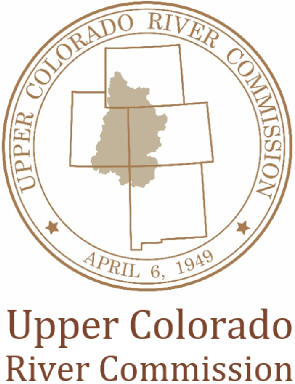As climate change continues to shrink the Colorado River’s largest reservoirs, a group of four states that use its water are set to lay out plans to reboot a conservation program. The Upper Colorado River Commission – comprised of Colorado, Utah, Wyoming and New Mexico – plans to announce details of an extended “System Conservation Pilot Program” through which water users could be paid to cut back on their use.
The soon-to-be-launched program aims to use a pool of $125 million from the Inflation Reduction Act for payouts to “mitigate the impacts of long-term drought and depleted storage,” according to presentation slides obtained by KUNC.
Lake Powell, the nation’s second-largest reservoir, is at record low levels. It is primarily filled with high-altitude snowmelt that flows south from the Rocky Mountains. Water managers in the Upper Basin are under pressure to conserve water and prop up Powell in order to keep hydropower generators running at the Glen Canyon Dam.
The new program is an extension of a previous effort. An earlier pilot program ran from 2015 through 2018. Designed to serve as a proof of concept, the UCRC distributed more than $8.5 million as a part of that program and conserved an estimated 47,207 acre-feet of water.
For more of the story, click here.

